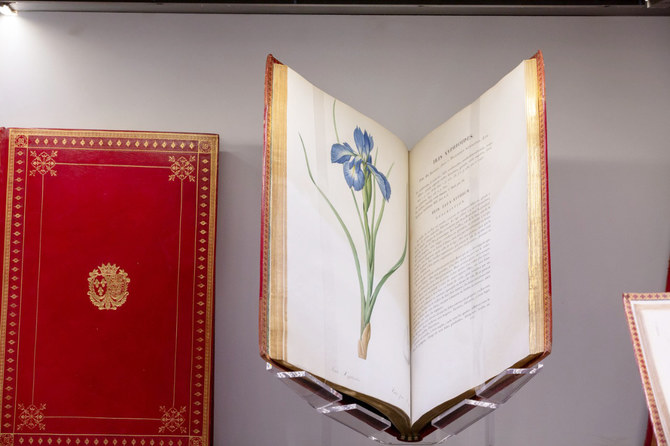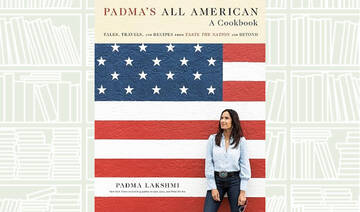RIYADH: Some of the world’s top publishing houses have been showcasing historical books and manuscripts on the Arabian Peninsula at the Riyadh International Book Fair.
Journeys by Orientalists, travelers, and writers who visited the Levant are featured among exhibits at the annual event with a number of the books dating back hundreds of years and worth more than $500,000.
“Horseman with the Bedouins,” a manuscript by Polish Orientalist Prince Watslaw Jywoski and valued at $12,000, was put on display by a Polish publishing house specializing in ancient texts.
The book recounts his trip to the Arab Peninsula more than 200 years ago after he was sent there by Queen Catherine of Wurttemberg on a mission to improve European breeding programs for military horses.
Jywoski describes how he fell in love with the desert, horses, and the Bedouins and his writings have provided an important historical observation of the region at the time where he counted 178 branches of a tribe and studied horses and Arab methods of raising and treating them.

This book printed by Assouline publishing house weighs 70 kilograms, more than 10 kg heavier than a regular window-type air conditioner. (Supplied)
Christie’s publishing house has been showcasing eight volumes of Belgian painter and botanist Pierre-Joseph Redoute’s “Les Liliacees,” a first edition estimated to be worth $625,000.
The book, with its fascinating drawings and bright colors, was published in 1816, and is wrapped with goatskin and its sides are gilded.
Also on show at the fair is the $12,000, 70-kilogram “AlUla” book printed by Assouline publishing house. It took two years to prepare and includes dazzling photos of the ancient city and its landmarks in the heart of the Saudi western desert.
This year’s book fair has attracted publishing houses from France, Italy, India, Australia, and the US, bringing with them literature never before seen in the Kingdom.
Writers, publishers, cultural figures, and leaders from around the world are expected to attend the 10-day event, which opened Thursday, and visitors have already been flocking to the fair to purchase international books on subjects including humanities, economics, science, and children’s literature.



















